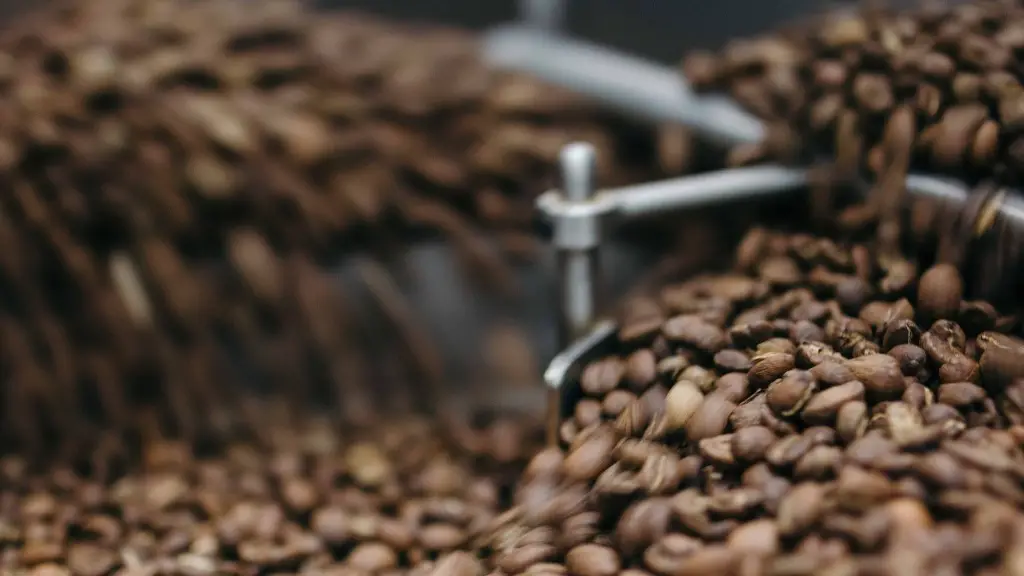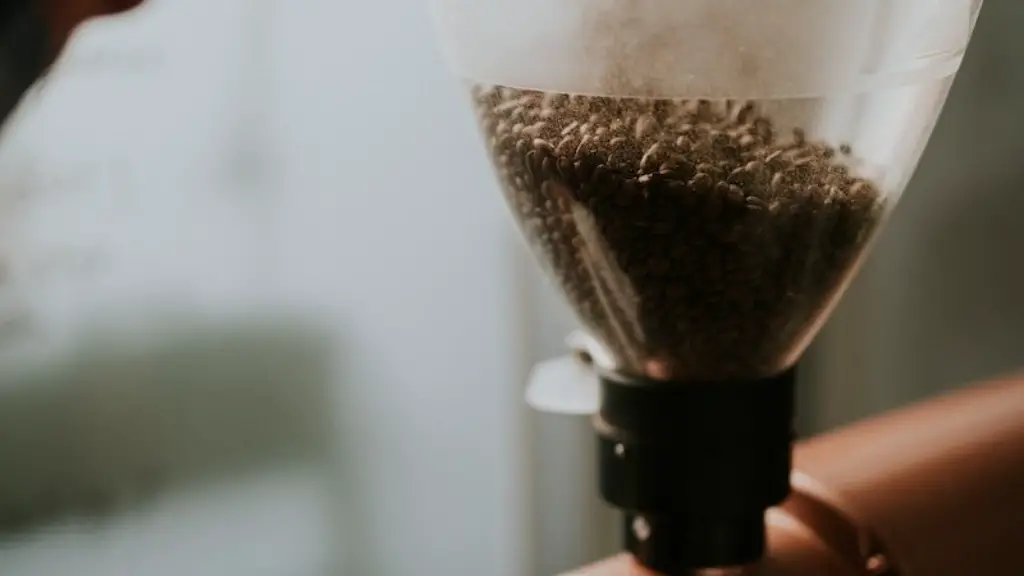We all know how warming and comforting a cup of coffee can be. But how healthy can coffee be for us when we have a cold? What are the benefits, if any? Is it really alright to take too much of it? Here, we explore the answer to these questions.
Caffeine is an ingredient found in many cold medicines, and it is known for stimulating the mind, helping to reduce fatigue, and it has been suggested to improve response time and overall cognitive function. But what about coffee? Is coffee good to drink when you have a cold?
The truth is that coffee can actually be quite beneficial when taken in moderation. Caffeine can act as a decongestant, helping to reduce pressure and inflammation in the nasal passages, making it easier to breath. However, there is some evidence that suggests that too much caffeine can actually worsen cold symptoms. Studies have shown that drinking too much coffee can irritate the throat and make it harder to clear mucus from the lungs.
Moreover, although moderate amounts of coffee may help reduce inflammation, large doses of caffeine can increase inflammation, which could make a cold worse. It is also important to remember that coffee can dehydrate you, and dehydration can make cold symptoms worse. So it is important to stay hydrated and not overload on any one beverage.
Experts advise that if you are going to drink coffee when you have a cold, you should limit your consumption to no more than 2-3 cups per day and that you should replace some of those with decaffeinated drinks. This will help you avoid the negative effects of too much caffeine while still getting the beneficial effects.
In addition to the above, it is important to remember that when you are sick, you should try to get plenty of rest and fluids. This is true even if you do not feel thirsty. Sipping fluids, like tea and hot broth, will help thin out thick mucus and prevent dehydration. Here, it is also important to keep in mind that fluids do not just come from the water we drink, they can also come from the food we eat. Eating healthy, nutritious foods can help us stay hydrated and boost our immune system.
Finally, if your cold symptoms last longer than a week, it is best to see a doctor. This is especially true if you have a fever or other symptoms that are concerning. A doctor can help you determine if there is an underlying issue, such as an infection, that needs to be addressed.
Coffee and Colds: Dehydration
When you are sick with a cold, it is important to stay hydrated. But drinking coffee does not necessarily make it easier for you to stay hydrated. It might seem counterintuitive, but coffee can actually be quite dehydrating. Caffeine is a diuretic, meaning that it causes you to urinate more than normal. This means that coffee can actually increase the rate at which fluid is lost from your body.
It is important to stay hydrated when you have a cold to help thin out thick mucus and prevent it from becoming stagnant in the lungs. So while coffee may have a temporary bump in alertness, it is important to be aware of its dehydrating qualities.
It is important to note, however, that this does not mean that coffee is completely off limits when you have a cold. But if you do choose to drink coffee when you have a cold, it is important to replace some of those cups with decaffeinated drinks and to make sure that you are still drinking plenty of water throughout the day.
Coffee and Colds: Stimulant Qualities
Caffeine is a stimulant, meaning that it can make you feel more alert and awake. This can be beneficial when you are feeling the effects of a cold and fatigue. Caffeine can act as a natural pick-me-up. However, it is important to remember that too much caffeine can actually have the opposite effect. Meaning that if you overindulge in coffee, it can actually lead to increased fatigue and exhaustion.
It is important to be aware of this and to not rely too heavily on caffeine to get you through a cold. Instead, focus on getting adequate rest and let your body heal naturally. Coffee can be a welcome pick-me-up to help alleviate the fatigue brought on by a cold, but too much can worsen it. So be sure to limit your consumption, even when it comes from cold medicines.
Coffee and Colds: Benefits for Immune System
One aspect of coffee that does have a positive effect on colds is its beneficial effects on the immune system. It has been suggested that regular consumption of coffee can help protect against certain diseases, including colds and flu. This may be because coffee can help to boost the immune system, making it better able to ward off viruses and bacteria.
In addition, coffee is also packed with antioxidants, which have been linked to overall better health. Antioxidants help protect the body from free radicals, which can damage and weaken the body’s cells. Drinking coffee can help boost this defense and can help the body fight off viruses, bacteria, and toxins.
Finally, it is important to keep in mind that moderation is key when it comes to drinking coffee. Too much caffeine can have a negative effect on your health, especially when you are sick. So, it is advised that you limit your consumption to 2-3 cups per day and that you replace some of those with decaffeinated drinks. This will help you get the beneficial effects of the coffee while avoiding the potential negative effects.
Coffee and Colds: Sugar Intake
One aspect of drinking coffee when you have a cold that is often overlooked is sugar consumption. When you are under the weather, you may be tempted to add more sugar to your coffee to make it more palatable. However, it is important to keep in mind that sugar can have a negative effect on your body’s ability to fight off infection. Too much sugar can interfere with the body’s ability to absorb the essential nutrients it needs to help fight off the cold.
In addition, sugar can also increase inflammation in the body and can have a negative effect on the immune system. This can make your cold symptoms worse and can even prolong your illness. So it is important to be mindful of your sugar intake when you are trying to battle a cold and to make sure that you are not adding too much to your coffee.
Coffee and Colds: Conclusion
In conclusion, coffee can be beneficial when taken in moderation. It can help reduce inflammation, stimulate the mind, and bolster the immune system. But it is important to remember that too much coffee can have a negative effect on your body and can even worsen your cold symptoms. So it is important to stay hydrated, get enough rest, and limit your caffeine intake when you are battling a cold.




